Text
Brieuc Poulain - Environmental Stakeholder Statement
As a young adult, graduating from the Paris Institute of Political Studies (Sciences Po), and as a future student of the Paris School of International Affairs in Environmental Policy, I define myself as a socially and environmentally responsible actor, both through my values and my personal commitment to the biotic community. As the grandson of a farmer who still believes in an ancient Breton Goddess, I am equally sensitive to how rural societies interacts with the environment in the political and cultural realms.
Therefore, I deeply relate to Aldo Leopold's Land ethic: « A thing is right when it tends to preserve the integrity, stability and beauty of the biotic community. It is wrong when it tends otherwise. » My personal ethics is profoundly ecocentric. In my opinion, it is because we are part of the same community of living beings, or of the same biotic community, that we have duties to both its members and the community as a whole. Integrating human activities into the natural environment, could thus offer innovative models of behavior.
Furthermore, the intersecting perspectives of the natural and the social offered by the concepts of environmental racism and ecofeminism seem particularly relevant to the analysis of current public policies. De facto, it is by placing the question of environmental inequalities — the ecological harm that is done to certain category of the population, the poorest and the most discriminated — at the heart of its demands that the environmental movement will rise to the height of its historic mission, that of putting a stop to the destruction of our biosphere by a capitalist system generating even more inequalities. The critical theories mobilized throughout the semester thus confirmed my wish to pursue a career in the field of environmental governance.
0 notes
Text
Ecotheology
« Science and religion, with their distinctive approaches to understanding reality, can enter into an intense dialogue fruitful for both. »
Pope Francis, Enclyclical Letter, Laudato Si’, On Care For Our Common Home
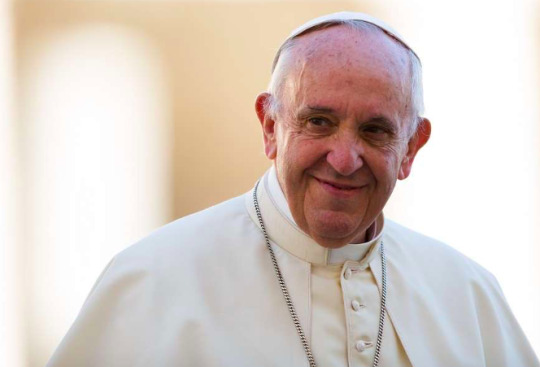
Every day, media and scientists present new figures revealing the growing impact of Human Beings on our planet Earth. These informations inexorably add to the long procession of data accumulated over the last decades. The prospect of a global warming to 4 ° by 2100 and a massive erosion of biodiversity are their main recent signals. With the acceleration and combination of threats, our governments strive to respond mechanically with solutions that are usually devoid of environmental ethics, mainly technicists, supported by technology, engineering and other innovations in the commodification of nature, such as payments for environmental services.
The common denominator of these initiatives lies in their multi-secular anthropocentrism. They are driven by the same desire to preserve a nature, property of Man, by Man and for Man. And this, with the ultimate goal of maintaining an economic system that we know is largely responsible for the degradation of ecosystems.
Nonetheless, because man has no future in an exsanguine environment, what our reality henceforth demands and that our reason still cannot conceive or refuses to recognize appears more and more clearly. To guarantee our future, it is no longer just a matter of tempering the human impact on the living, with a great deal of innovation and sustainable development strategies in this or that sector. A true paradigm shift, the challenge is to found a new relationship with Nature and to establish a governance of the Earth.
This ambition requires first of all to break with the idea rooted in the West, particularly with Descartes, of the separation of Human Being from Nature. Over the centuries, it unfairly validated the hegemony of a human subject and exclusive owner of an object Nature, which he can freely dispose of beyond its limits and cycles. Convoked by this necessary philosophical and cultural transition, we must no longer think of ourselves as sovereigns but as accompanying and interdependent entities of the entire living world.
In this perspective, Human Being becomes a member of the Earth Community and the latter, and the ecosystems that compose it, are no longer considered as a collection of resources but a set of living organisms with interdependent functions and roles. By gradually adopting a more biocentric approach, we will be able to establish systemic rules no longer dictated solely by human reason but guided by the fundamental laws of Nature, a doctrine that the American eco-theologist Thomas Berry has theorized under the name of Earth Jurisprudence.
According to this philosophy, the Earth and the Universe are the primary sources of the natural laws that govern life. Earth Jurisprudence provides the philosophical basis for its governance. And this begins with our common pact. The social contract of Hobbes, Locke and Rousseau linking men to each other, excluding the Nature of the world, is transformed into a natural contract that binds human society to the natural world to which it belongs.
The climate issue in a globalized world has thus become a central issue. For Christianity, the climate issue is not a novelty but the way to approach it does not cease to change. From the Creation, the climate is closely linked to the divine plan. Between nostalgia for Paradise, moment of balance and harmony interrupted by the original sin, and fear of the Flood, expression of the divine wrath, the believer sought to trace a path that protects him and to make sense of the disturbances of nature. But in the course of socio-cultural changes, the reference to the religious evolves and the discourse follows, as evidenced by the encyclical Laudato si 'of Pope Francis (2015). The explanation by divine sanction gives way to the will to scientifically identify the causes and to contribute to a universal ethic in an ecological perspective. In this commitment, religion finds new energies.
In fact, it becomes difficult to present the Human Being as the center and summit of earthly creation, to whom everything on earth must be ordained, as Vatican Council II could still do. Biologists are, to say the least, reluctant to say that evolution is human- oriented, even though they may recognize that the human individual enjoys autonomy from his environment that is not shared by others animals. Moreover, if one realizes the perverse effects of human action, endangering the future of the planet, one feels little inclination to exalt humanity as the accomplishment of creation. Would it not be wiser to trust the earth, to learn more about the workings of nature, to listen to it and renounce all violence against it? Repeating stoic theses, it is asserted that nature, the earth in particular, would be a self-regulating system, according to, for example, The Gaia Hypothesis of James Lovelock.
The teaching and writings of Thomas Berry inspired a renewal in the way that an entire generation sees the role of humanity in the planetary and cosmic community.
For Thomas Berry, the universe is « a communion of subjects and not a collection of object » and our first allegiance should not be to the human community, but to the biosphere as a unique but diverse « planetary community » with which we must move from a domineering relationship to a participatory relationship framed juridically and legally by explicit charters of rights covering minerals and plants as well as animals and humans.
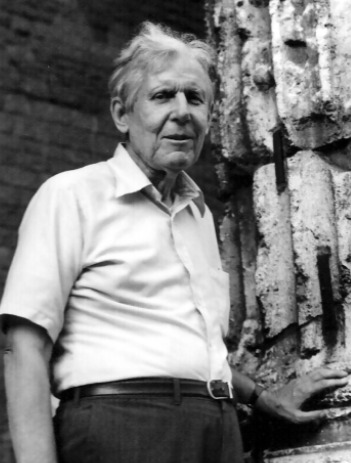
Revealing of a continuous cosmogenesis, the physical sciences are for him a tool of introspection generating fascinosum and tremendum, two inseparable facets of spiritual experience. Far from invalidating the religious attitude or opposing it, science is for Thomas Berry a precious source of renewal of our obsolete cosmologies. He sees there a true and new Revelation. Threatened by the accelerated collapse of the branches of biodiversity on which we are seated, we are invited to consciously inaugurate the Ecozoic Era characterized by a global community whose emergence will have to go through a metamorphosis of the global village governed by the laws of industry and the market. The mission to which we are called to participate is for Thomas Berry a resacralization of the world and a celebration of our belonging to the living organism, polymorphous and without exclusion that must be the « community of the Earth ».
While sounding the alarm, Thomas Berry invites us to recover our role of depositories of the conscience and to start a true partnership with the planetary community. How can man rediscover himself in the image of God and how can he understand his vocation to the domination of Creation? Thomas Berry proposes to make the project of humanity that of the Earth, and thus that of the universe. That is to say to have a behavior compatible with the requirements of ecological balance.

The interreligious statement to world leaders was officially delivered to UN General Assembly President Mogens Lykketoft (right) on April 18, 2016.
After COP21 and before the signing of the Paris Agreement on Climate at the United Nations on April 22, 2016, international religious communities called on world leaders to take action on climate change by issuing a signed joint declaration by 270 senior religious leaders, 4970 people and 176 religious groups. « In our contemplation of how tragic moments of disintegration over the course of the centuries were followed by immensely creative moments of renewal, we receive our great hope for the future. To initiate and guide this next creative moment of the story of the Earth is the Great Work of the religions of the world as we move on into the future. » (Thomas Berry, “Religion in the Twenty-first Century,” in The Sacred Universe, 87).
Questions
In the United States, a country where the separation between church and state is still porous, a productive relationship between religion and politics may seem possible. In what extent does it apply to countries like France, where the separation of these entities is clearly inscribed in the collective imagination and the laws of the Republic?
Do religious leaders nowadays consider the ecology as a new, lucrative medium to conquer new believers?
Word Count : 1363
0 notes
Text
Biocentrism & Ecofeminism
The theorists of intrinsic value are in search of a general theory of moral value, of an abstract, universal principle, which qualifies individual entities. They do this by applying the Kantian schema of morality far beyond its usual limits: if I attribute to myself a moral value, because I am an end in itself, I must recognize the same value to any entity with the same characteristics. Once man has become aware of the profound identity of all beings, he will know how to respect and protect nature. These biocentric morals are morals of respect, moral ethics: in every living entity they discover an entity worthy of respect, by itself or in itself.
Among the authors who advocate a biocentric ethic, Paul W. Taylor occupies a special place, with his Ethics of Respect For Nature. According to Taylor, nature will not be well respected as long as humans continue to perceive it as a simple means. The intrinsic value is by no means an objective property, such as the form of the living being, which may give rise to an observation or investigation of a scientific nature. It is a philosophical notion, the adoption of which would give meaning to the idea of an obligation towards the living and natural world.[1]
To state that men have the obligation to respect living beings on the basis of the equality of all the living from the point of view of intrinsic value is to state a general moral principle. But in practice, the respect of this principle is not easy, because living beings do not have the same interests, which sometimes oppose them to each other. This is why Taylor has established rules for cases where respect for the life of one individual does not respect that of another. These rules are those of self-defense, proportionality, least evil, distributive justice and restitution justice. Thus, we must compensate for the loss, destruction, harm we have done to living beings, creating favorable conditions for the preservation of species, for example. This justice requires that respect for life be given a broader dimension: the community dimension. To emphasize the latter is to demand that not only the biotic communities be taken into consideration, but also all the natural conditions without which no species can survive.
We talked about community and nature. But can we talk about nature and community without talking about women? Karen J. Warren emphasizes the importance of feminism for environmental ethics. Furthermore, environmentalism is just as important for feminism: the cause of nature is integral to the cause of women. Karen J. Warren (born 1947), a feminist philosopher, has published numerous essays on ecofeminism. She has published two anthologies on ecological feminism, and lectured around the world on these issues.
When one approaches modernity, as Carolyn Merchant does, from the point of view of women, of nature, and of the least favored classes (since she associates scientific and technical development with that of capitalism), the notion loses its universal dimension: instead of progress and emancipation for all, we find the domineering ambitions of whites, straight, males. Women and nature find themselves on the wrong side of this conquering enterprise. By studying the transformation of the Earth's conception through metaphors that associate women and nature, Carolyn Merchant does not stick to the opposition of organicism and mechanism, often put forward by the philosophy of the environment (John Baird Callicott), she presents a real structure of domination: she uses the female experience to study nature, thus we discover that it is not only a question of representing it, but of dominating it, that it is a report of power, linked to affects and values. The criticism led by Carolyn Merchant is both epistemological and moral.[2]
From this joint and crossed dominance (nature is seen as a woman, women are assimilated to nature), Karen Warren analyzes the conceptual framework. In the series of dualisms that characterize modern thought (nature / culture, nature / society, woman / man, passive / active, object / subject, emotional / rational, matter / spirit), she sees the stages of a logic of domination that leads to subordination. Men, rational subjects, active, independent, are thus entitled to make women and nature the passive objects of their domination. Karen Warren calls for their commun release, at the end of all the oppressive 'isms': sexism, racism, naturism ...

« Le Rêve » (1910), Douanier Rousseau. MoMA, New York.
Far from the notion that the rapprochement between women and nature inevitably leads ecofeminists to naturalize women, the vast majority of ecofeminists have the opposite effect: it is rather the evidence of nature, as a given timeless and universal, which is in question. If we can consider, as feminists often do, that talking about nature and women is a way of doing violence to them, as the idea of nature is associated with domination (as understood by Karren Warren), conversely, to see in nature a woman is a way of devaluing her or asserting her dependence.

Front Page of FERAL - Feminists Rallying for Animal Liberation. Twitter, 2018.
In their fight against a logic of domination that applies to women as well as to nature, ecofeminists call for the adoption of new relations: non-hierarchical, non-domineering. This is where they refer to the ethics of care: « ecofeminism as a feminist and environmental ethic. ... of care, love, friendship, trust, and appropriate reciprocity — values that presuppose that our relationships to others are central to our understanding of who we are ».[3]
Questions
Is eco feminism intersectional?
What are the practical realities for restitution justice in a capitalist world?
Word count : 986
Bibliography
Taylor, Paul W. "The Ethics of Respect for Nature." Environmental Ethics 3, no. 3 (1981): 197-218. doi:10.5840/ enviroethics19813321.
Carolyn Merchant (2010) Earthcare: Women and the Environment, Environment: Science and Policy for Sustainable Development, 23:5, 6-40, DOI: 10.1080/00139157.1981.9933143
Warren, Karen. 2000. Ecofeminist philosophy: a western perspective on what it is and why it matters. Lanham, Md: Rowman & Littlefield.
0 notes
Text
Hierarchical Animal Rights
« A thing is right when it tends to preserve the integrity, stability and beauty of the biotic community. It is wrong when it tends otherwise. »[1]
Aldo Leopold
The values of integrity, stability and beauty are central to Leopold's ethics. Interpreter of this heritage, the American philosopher John Baird Callicott has unfolded its metaphysical and ethical foundations: the ecological vision require a rejection of a mechanical vision of the world, in favor of an organicist and holistic vision. This conviction leads him to develop a multilevel communitarian ethic, where belonging to each community entails a set of duties to protect the interests of the latter. Thus, the human being must make sure to preserve the interests of the human community, but as a member of a global biotic community, he must be careful to preserve its integrity, stability and beauty. To arbitrate the possible conflicts between the levels and the community memberships, Callicott advocates for a priority of the duties coming from the nearest communities.
He challenges, with a certain virulence, the supposed agreement and cohesion between environmental ethics and animal ethics. Rejecting the idea that we would have, on the one hand, animal or environmental ethics, not anthropocentric and, on the other, defenders of traditional conceptions for which there is only moral by, and for, Men, Callicott argues that the distance between environmental ethics and animal ethics is at least as great as that which distances each of them from traditional ethics (hence the image of the triangle). He thus accuses animal ethics of sticking to traditional moral conceptions, which they simply apply to animals. Callicott accuses these "humane ethics", which are animal ethics, to preserve "human values ».[2]
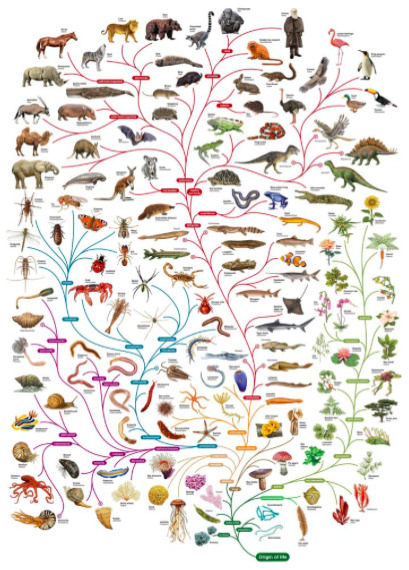
Indeed, one might think that environmental ethics simply pursue extension, crossing the threshold of sensitivity to extend moral consideration (as Paul Taylor does) to all living organisms (animals without sensitivity, plants, microorganisms). But that's what Callicott is questioning. The protection of nature, he points out, is less about individuals than about species or, more precisely, about populations.
In addition, it is not only a matter of worrying about the living, but also the environments without which they would not be able to live (the streams, the oceans, a marsh, a mountain, the air ...), and this especially since it is often the transformations of these habitats and of these natural properties that are at the root of the erosion of biological diversity. Finally, the protection of nature does not take into consideration discrete (even aggregated) entities, but a set of beings linked by interdependent relations and which form a whole: an ecosystem, or what Callicott, borrowing the term to Aldo Leopold, calls a « biotic community »[3].
The major silence of French intellectuals with regard to ecology is not so much an indifference as a mistrust, even a declared hostility. According to Luc Ferry, the idea of the biotic community law is philosophically indefensible. He warns his readers, if not against a new form of irrationalism, at least against the virtualities of irrationalism of fundamental ecology. Thus, Ferry seeks to show how thoughts such as Callicott's ultimately lead to a hatred of man and a rejection of democracy: only an authoritarian regime could impose on men the necessary measures for the preservation of nature. As for the author, he defends an environmental ecology that recognizes man's duties towards nature and advocates progressive changes within the framework of liberal democracy that respects human rights[4].
Ferry is more interest in showing the dangers of deep ecology than about defending environmental ecology. His theses deserve to be specified. Still, it poses an essential question: Would it not be possible to refuse both "wild" capitalism and "deep" ecology in order to allow humanity to reconcile with nature without renouncing itself?

Luc Ferry has won the Prix Medicis for his essays, as well as the Prix Jean-Jacques Rousseau. He was formerly the Minister for Youth and Education in France.
Indeed, the ecocentrism of J. Baird Callicott raises many questions. Can we, as the author thinks, define our obligations towards the members of a community from a description of this community? It is a form of naturalism that not everyone is willing to accept. Moreover, what do we do when conflicts arise due to belonging to different communities? J. Baird Callicott believes that our allegiances to close communities take precedence over our allegiances to more distant communities. Still, in my opinion, a pluralist ethical theory is doomed to fail unless it produces precise rules for conflict resolution. Such rules are still lacking to J. Baird Callicott. D. VanDeVeer, tried to formulate some. His Two Factor Egalitarianism strives to achieve a maximalisation of utility. The first factor is the weight of the different interests, wether basic, serious or peripheral. The second relies on the degrees of sentience of the parties in conflict (based on the complexity of psychological capacities of the latter)[5].
Thus, after the liberation of animals, the elaboration of the details of our principles, procedures and moral practices would require that we put aside the "us / them" mentality that characterizes humanism, to develop instead a morality and a mentality oriented towards differences of degree which would emphasize our belonging to a fundamentally diverse community of interests.
Questions
What political project for a practical consideration of the ecosystem?
Is an ecological fascism conceivable?
Word Count: 963
Bibliography
Leopold, Aldo, 1886-1948. A Sand County Almanac, and Sketches Here and There. New York :Oxford University Press, 1949.
Callicott, J. Baird (1988) "Animal Liberation and Environmental Ethics: Back Together Again," Between the Species: Vol. 4: Iss. 3, Article 3. DOI: https://doi.org/10.15368/bts.1988v4n3.1.
Leopold, Aldo, 1886-1948. A Sand County Almanac, and Sketches Here and There. New York :Oxford University Press, 1949.
Ferry, Luc. The New Ecological Order. Chicago: Univ. of Chicago Press, 2009.
VanDeVeer, Donald, and Christine Pierce. The Environmental Ethics and Policy Book Philosophy, Ecology, Economics. Vancouver: Crane Library at UBC, 2012.
0 notes
Text
Egalitarian Animal Rights: Singer’s Utilitarian Approach
« All the arguments to prove man's superiority cannot shatter this hard fact: in suffering the animals are our equals. »[1]
Peter Singer, Animal Liberation
Do animals have rights? Legal rights, that is to say, granted, or moral rights, in an other word, inherent? The former fall under animal law, the latter under animal ethics. Both are related since legal rights are supposed to embody moral rights. This desire to assign rights to animals is ancient. Theophrastus, IV century BC, already wanted, according to the words reported by Porphyry, « to extend to animals the right »[2]. In 1864, Thomas Tryon, also attributed « natural rights » to animals, in the sense of a right to life and not to be enslaved[3]. The movement has since grown from a simple assertion that animals have rights to elaborate complex theories to justify it.
Tom Regan has quickly established himself as the leading theoretician of animal rights. The purpose of his theory of rights is to justify the abolition of animal exploitation. His major work,The Case for Animal Rights (1983), is one of the great classics of animal ethics.
The starting point of Regan's theory is the recognition of the mental life of certain animals, which can be said to have beliefs, a memory, a sense of the future, and a sense of self. Some animals, according to Regan, also have an intense emotional life, as Darwin had shown for the affection, fear, suspicion and jealousy of mammals.
Compassion is a decision. Not only can we believe ourselves charitable with animals without this being the case, but it comes down to thinking in their place. The Kantian idea of duty therefore becomes crucial. However, for Tom Regan, Kant's philosophy is questionable in that it continues to make animals « patients » and not genuine moral « agents ».
Regan distinguishes damage by infliction, such as physical or psychological suffering, and deprivation damage, which results from deprivation or loss of the benefits that make possible or expand the sources of satisfaction in life. This second category is precisely what allows the author to come out of a perspective based on the only suffering to say that the slaughter of the animals, even painless, is morally problematic, since « An untimely death is a depravation of quite fundamental and irreversible kind [...] Death is the ultimate harm because it is the ultimate loss - the loss of life itself. »[4]
Regan's damage principle therefore prohibits death. In this, he opposes the utilitarian theories which, by allowing harm to the extent that it increases the general utility, do not satisfy this direct duty not to hurt and could even lead to a legitimization of the murder, if not causing any harm to the survivors or if the harm caused was compensated by a superior benefit. The utilitarian, unlike the deontologist, does not give an inherent value to the beings. The interests of animals remain for this philosophy a « variable » of ours. This is precisely what Regan reproaches, he who conceives the inherent, intrinsic and categorical value in the Kantian sense of the term, because it admits of no degree.
« The fundamental wrong is the system that allows us to view animals as our resources, here for us — to be eaten, or surgically manipulated, or exploited for sport or money. »[5] Animal equality, according to Regan, is not one of their interests, but of their inherent value and respect for justice. He therefore poses the « principle of respect ». Expressed in terms of law, the principle of respect means that the subjects of a life have an « absolute right » to respectful treatment, that these animals have « a right identical to ours to be treated with respect »[6]. In other words, not to be used as the means of an end.
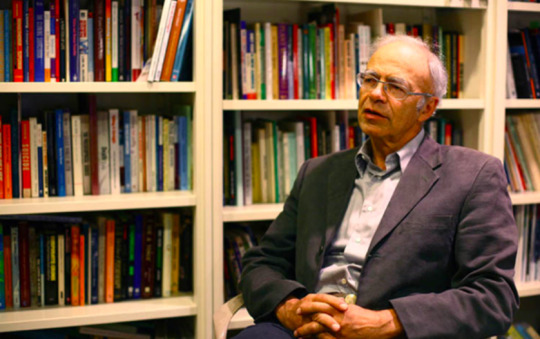
Philosopher Peter Singer. Source: New Philosopher, June 7, 2015.
Utilitarianism can be defined as the doctrine which impose usefulness as the principle of all values. From the writings of Bentham, we find in this philosophical current an attachment to the animal cause : « The question is not, Can they reason?, nor Can they talk? but, Can they suffer? Why should the law refuse its protection to any sensitive being?»[7]. The maximalist version of this philosophy pushes for the overthrow of traditional values in the West. According to the proponents of this current, equality must reign between the animals, of which the man is a part. The animal, sensitive being, acquires rights which must be recognized to it: it must be able to defend them, if necessary before a judge. The animal thus becomes a potential subject of law.
Peter Singer, professor of bioethics at Princeton University, is the emblematic figure of the movement named after his famous book, Animal Liberation (1975). His point of departure is the thesis of animal equality. Equality, he explains, is a moral notion : it is normative.
Peter Singer considers that the moral horizon must be extended to animals. Indeed, animals are sensitive, especially to suffering, so it is immoral to make them knowingly suffer. For Singer, we must be guided by pity and not by our particular interests. Animals are just like us: living beings with a conscience. They therefore justify an equal level of consideration. It is by abuse of power that we deprive them of freedom, that we exploit them, that we kill them. The appropriation of domestic animals is an archaism in the same way as slavery and the domination of women by men, and it is certainly going in the direction of human progress to release, also and finally, animals of their chains. Killing animals and eating them is criminal, which is why Singer advocates vegetarianism. For Singer, the difference of species is not an acceptable moral criterion; what matters is sensitivity. There is a threshold of sensitivity according to the species beyond which the very notion of sensibility no longer makes sense; what makes the difference between a unicellular entity and a pig. The question of the level of consciousness is articulated with that of sensibility; what makes the difference between a human being, whose abilities to think and enjoy life are altered, and a pig in full possession of his means.
Questions
Are animals people or property? If they are neither, what are they exactly, and should not we create a new category?
What does our current disdain for animal pain says about human nature?
Word Count : 1103
Bibliography
Singer, Peter. Animal Liberation: The Definitive Classic of the Animal Movement. New York, NY: Ecco, An Imprint of HarperCollinsPublishers, 2009.
Porphyry, Thomas Taylor, Esmé Wynne-Tyson, and Porphyry. On Abstinence from Animal Food. New York: Barnes & Noble, 1965.
Tryon, Thomas. The Country-mans Companion, Or, A New Method of Ordering Horses & Sheep so as to Preserve Them Both from Diseases and Causalties, or to Recover Them If Fallen Ill: And Also to Render Them Much More Serviceable. London: Printed and Sold by Andrew Sowle. 1980.
Regan, Tom. The Case for Animal Rights. Berkeley: University of California Press, 2010.
Ibid.
Ibid.
Bentham, Jeremy. Introduction to the Principles of Morals and Legislation. Oxford: Basil Blackwell, 1967.
0 notes
Text
Egalitarian Animal Rights: Calculating Your Animal Suffering Footprint
« It is certain, in any case, that ignorance, allied with power, is the most ferocious enemy justice can have »[1]
James Baldwin, No Name in the Streets
« Ignorance is our species first line of defense. Yet, it is easy breached by anyone with the time and conviction to find out the truth. Ignorance has prevailed so long, only because people do not want to find out the truth »[2]
Shaun Monson, Earthlings
« And the reason for this ignorance is that a knowledge of the role these people played—and play —in American life would reveal more about America to Americans than Americans wish to know. »[3]
James Baldwin, Letter from a Region in My Mind
Differences of treatment based on arbitrary criteria prioritize individuals and allow some to enjoy privileges to the detriment of others. This construction of more or less privileged groups structures our society, which nevertheless claims the notion of equality. For a long time, however, people have contributed to revealing the social reality of the normative system and questioning its objective and universal appearances. Often through struggles for emancipation, they have undermined the axiom of the existence of a natural order, fundamental ideological support to discrimination and privileges that accompany them.
Anthropocentrism — the idea that humanity is the center and apogee of creation — derives from two systems of thought that reinforce each other: speciesism and carnism. Specism consists in granting less moral value to beings not belonging to the human species; Carnism, on the other hand, is the ideology which conditions us to consider as just, natural and necessary to eat, and more generally to subjugate, the members of certain animal species.The question of the moral status of animals, which is the raison d'être of animal ethics, therefore asks: are animals moral patients? Those who are engaged in the so-called animal liberation movement obviously answer in the affirmative and thus give animals, either to all or some of them, the quality of moral patient. As a consequence, whenever we, humans and moral agents, have a relationship with an animal who is also a moral patient, we have a responsibility to him and the way in which we treat him can be evaluated morally, characterized good, or bad.
The particular aspect that differentiates speciesism from racism and sexism lies in the fact that the difference in consideration and treatment of animals, in relation to humans, is a norm that is almost universally shared in our society. We live in a socially, institutionally and culturally speciesistic world. It is generally believed that speciesism is not discrimination like racism or sexism, because animals are really different. Unlike apartheid or segregation, which is no longer officially justifiable, both humans and animals are entitled to the treatment due to them, which differs according to their different nature. Thus, animals suffer from human beings a multitude of treatments. Whether they are produced for a particular purpose or taken from their environment, few escape the grip of the dominant species.
They are reproduced, fattened and killed on a scale never reached in history, cut up to be used as clothing or decorations, used to test weapons, pills or strippers, trained to attack or keep company, tamed to entertain in shows, captured to be visited in parks, fed, hunted, groomed, collected, mounted, for pleasure or profit[4]. The list is not exhaustive but sufficient to conclude that almost everything can be done to animals as long as they are not human. Indeed, men reserve for animals a fate that would be considered unacceptable and deeply unfair if it concerned human beings.
In a book suggesting that the industrialization of animal slaughter was the prelude to the Shoah, historian Charles Patterson presents the contemporary slaughterhouse as a scary, grimy and violent place[5]. In support of his argument, the author repeatedly quotes the work of the English artist Sue Coe. At the end of a multi-week survey in American slaughterhouses, the latter composed several painting representing it : cruel-faced men armed with whips, or even laughing men, killing beasts.

Small Factory Farm, 2010, from Sue Coe's book Cruel.
As for the other categories (gender for example), there is no logical link between biological differences and the reality of oppression, between justification and the act it is supposed to defend. The fundamental criteria that distinguish all human beings from all animals tell us nothing about the social dimension of the treatment we give them. This logic, similar to that found with racism and sexism, consists in hiding behind a veil of objectivity, a screen of a natural order, a reality that is only the result of power relations. There is no objective argument that justifies speciesism. We exploit and kill animals because we have the power.
In response to this institutionalized cruelty, the injunction to become vegan flourishes everywhere. It seems to be the universal rallying cry of the animal defenders. Such a position arouses the virulent disapproval of the food industry, but also, more surprisingly, some members of the animalist movement. They accuse the vegan lifestyle of losing sight of the fact that the refusal to eat eggs and fish or to wear leather is essentially a requirement of fundamental justice. Vegans would be pleased to find new plant-based meat replacements in stores, while billions of susceptible individuals continue to be exploited and killed. Veganism would only be a form of consumerism sprinkled with good conscience and self-satisfaction.
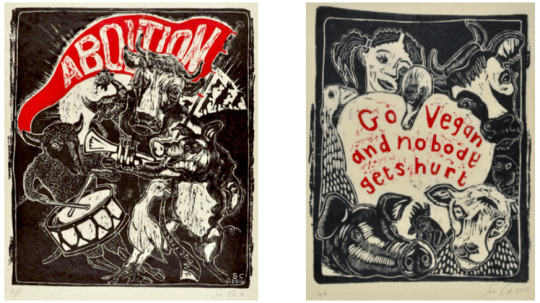
Go Vegan and nobody gets hurt, 2010, from Sue Coe's book Cruel.
All of these reflections, which use various means and reach sometimes conflicting conclusions, nevertheless share the same indignation at the violence suffered by animals. It remains to ensure that, in practical terms, this movement assumes all its consequences, so that the "animal question" is not only an intellectual posture but also a social awareness that changes the life of animals in the long term and make us better.
Questions
Are feminist, post-colonial and anti-speciesist struggles capable of a genuine intersectionality?
Veganism, at the crossroads between diet and social project, is it going to become the norm?
Word Count : 1099
Bibliography
Baldwin, James. No Name in the Street. New York: Vintage International, Vintage Books, 2007.
Monson, Shaun, Persia White, Moby, and Joaquin Phoenix. 2010. Earthlings. [Burbank, CA]: Earthlings.com.
Baldwin, James. Letter from a Region in My Mind. New York: Vintage International, Vintage Books, 2007.
Monson, Shaun, Persia White, Moby, and Joaquin Phoenix. 2010. Earthlings. [Burbank, CA]: Earthlings.com.
Patterson, Charles. Eternal Treblinka: Our Treatment of Animals and the Holocaust. New York: Lantern Books, 2002.
0 notes
Text
Leopold’s Land Ethic
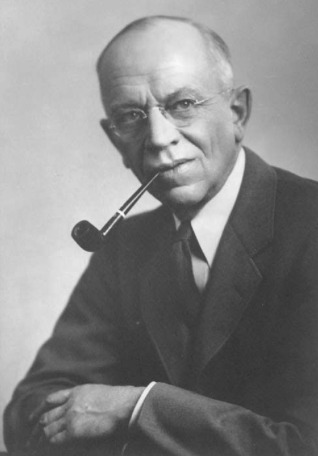
In a book written at the end of his life, A Sand County Almanac, Aldo Leopold, in the American tradition of nature tales (of which Thoreau is the initiator), illustrates, following the months of the year, a series of vignettes, where he recounts his morning walks, in his area of Wisconsin (the Sand County)[1].
These lively and endearing stories lead to the presentation of an environmental ethic, which Aldo Leopold calls Land Ethic.
One of the most famous stories in the Almanac, Think Like a Mountain, captures its meaning. Leopold presents himself as a hunter, whom the howl of the wolf, on which he has just shot, snatches his certainty on the necessary disappearance of the wolves. In the course of this fable, Leopold criticizes the policy of extermination of pests decided by the US Wildlife Management Office, a policy in which he himself had begun to participate actively, and who had led to the disappearance of wolves in many American states. Extermination to the advantage of hunters, it was thought, but the outbreak of deer and fallow that followed was short-lived, resulting in ecological damage (overgrazing, degradation of slopes) of long duration. Thinking Like a Mountain depicts the situation and shows how the wolf has a place in this biotic community. The prosperity of herds depend on it in the long run. Leopold thus discovers the level that integrates the points of view, assigning each to its place: it is the mountain, which "knows" that, without the wolves, the deer will proliferate and will put its slopes at risk.
Unlike biocentrism, which emphasizes the intrinsic value of each living entity, Leopold's ethic emphasizes the interdependence of the elements and their common belonging to a whole, that of biotic community. This ethic defines the duties or obligations of belonging to an including totality.
They have no value in themselves, regardless of the place they occupy as a whole and which assigns their value. Man is not outside nature, he is part of it: he is a member, just like wolves or deer, of the biotic community.
Land ethic can appear as a redundancy of ecology. However, what ethics brings to ecology is a lived modality: it appeals to feelings. Exploring the conceptual basis of Land ethic, Callicott brings out all that is due to the theory of moral sentiments, that of Hume and Smith, whose Darwin can be considered as a continuer[2]. Belonging is felt as a feeling of brotherhood with other creatures, and all the progress of the Sand County Almanac is there to awaken our feelings of closeness to nature. As Leopold himself says, Land Ethic is « in fact a process a process in ecological evolution ». These feelings of closeness, belonging to other members of the biotic community, are a component of social behaviors. Land ethic can therefore be considered as a variant of evolutionary ethics: it is, says Leopold, « a kind of community instinct in the making ».
He thus attributes to the attention to the wilderness the status of path towards an inner transformation. In Sand County Almanac, he evokes attention to seasonal changes in the ecosystem, the migration of wild geese, and woodcock dances. Leopold is in line with the writer, naturalist and philosopher Henry David Thoreau (1817-1862). For the latter, who spent two years at the edge of Walden Pond, in the forests of Massachusetts, nature is the greatest resource of humanity; it is to be preserved so that the man can flourish[3]. Man is invited to become aware of the complex equilibriums of ecosystems and the interdependence of life, to change his perception of what surrounds him, to modify his relation to the ecosphere in which he lives.The author of The Last of the Mohicans, the novelist James Fenimore Cooper, gives the myth of the wilderness and the "American pastoral" the most popular expression: in contact with nature, a corrupt civilization is transformed, by many epiphanies, in a civilization that realizes the divine will on earth[4]. Emerson and John Muir are also examples of a true ecological conversion, a conversion to nature in the United States of America. The advent of modernity, however, has supplanted contemplation in favor of manufacturing. All these activities described by Richard Louv have the same symbolic and social significance: to recreate the link between the child and nature, a link that has been distended by urbanization.
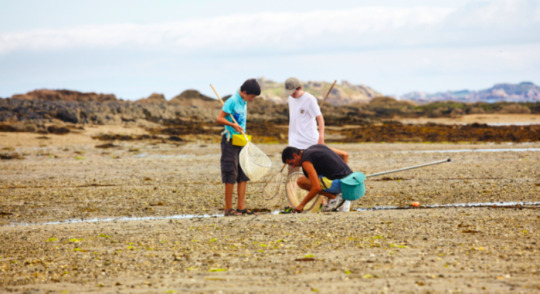
Children fishing in my hometown. Carantec, France, 2017.
Today, the relation to nature becomes the place of elaboration of a discourse on the value of the individual, in what is subjective, emotional, in opposition to a model of individualisation dependent of a massification of modes of production and consumption. This transition from nature to the social, from the meaning to be given to the relations of men with nature but also of men between them is found in the generalization of the ecological metaphor to describe the functioning of social relations. Thus, it is crucial to re-introduce the experience and intimacy in our relationship to nature: « The power of this movement in that sense, that special place in our hearts, those woods where the bulldozers can not reach »[5].
Questions
Is not the plurispecificity nature of the Land Ethic reprehensible in that it does not give more importance to one species more than another?
Does the overall result desired by Leopold really take into account the value of individuals?
Word Count : 1003
Bibliography
Leopold, Aldo. A Sand County Almanac. London, Etc.: Oxford University Press, 1968.
Callicot, J. Baird. In Defense of the Land Ethic: Essays in Environmental Philosophy. Albany (NY): State University of New York Press, 1989.
Thoreau, Henry David. Walden. New York: F. Watts, 1967.
Cooper, James Fenimore. The Last of the Mohicans: A Narrative of 1757. London: Benediction Books, 2016.
Louv, Richard. "Last Child in the Woods - Children and Nature Movement - Richard Louv." Richard Louv Blog Full Posts Atom 10. Accessed March 19, 2018. http://richardlouv.com/books/last-child/children-nature-movement/.
0 notes
Text
Holistic Earth Wisdom Worldviews
« La Nature est un temple où de vivants piliers
Laissent parfois sortir de confuses paroles ;
L'homme y passe à travers des forêts de symboles
Qui l'observent avec des regards familiers.
Comme de longs échos qui de loin se confondent
Dans une ténébreuse et profonde unité,
Vaste comme la nuit et comme la clarté,
Les parfums, les couleurs et les sons se répondent.
II est des parfums frais comme des chairs d'enfants,
Doux comme les hautbois, verts comme les prairies,
- Et d'autres, corrompus, riches et triomphants,
Ayant l'expansion des choses infinies,
Comme l'ambre, le musc, le benjoin et l'encens,
Qui chantent les transports de l'esprit et des sens. »[1]
Charles Baudelaire, Correspondances
The sacralisation of nature presented by Baudelaire in his sonnet Correspondances resonates with certain discourses of our current era. Nevertheless, the sensible theme of nature as a mother figure and subject of law does not exclusively belong to the registers of poetry and mysticism. This profound reflexion is enriched by the work of thinkers such as A. Naess, the prose of precursors like H.D. Thoreau or naturalists such as A. Leopold. They all nourish powerful currents of ideas leading to ethical theses and legal solutions that I will try to present and discuss.
Nature has long been considered and treated as an object of exploitation. Nowadays, this legal entity has a dignity to assert and fundamental rights to oppose humans.
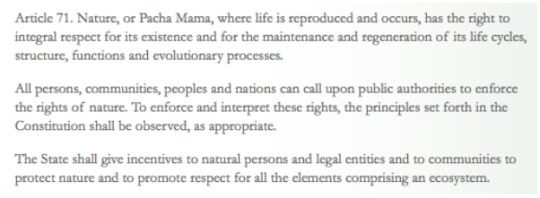
Constitution of the Republic of Ecuador, Chapter seven (Rights of nature), Article 71. Published in the Official Register, October 20, 2008.
Humanism proclaimed man the « measure of all things » (Protagoras), making our specie both the source of thought and value as well as their ultimate end. The revolution induced by deep ecology consists in reversing this perspective. The « measure of all things » is expanded to the whole universe (« widening the circle » is, indeed, one of the most constant slogans of the movement). Man becomes off-center and is placed in the line of evolution, in which he has no special privilege to assert. According to this philosophy, it is henceforth necessary to adopt the direct point of view of nature (« think like a mountain ») whose perfection of organization is the source of all rationality and all value. Its laws of cooperation, diversification and evolution are the model to follow. Each species, each site, each element, each process is now endowed with intrinsic value. A. Leopold gave, as early as 1949, a definitive formulation to this idea : « A thing is right when it tends to preserve the integrity, stability, and beauty of the biotic community. It is wrong when it tends otherwise.»[2]
Thus, the distinction between what A. Naess named, in 1972, the shallow and the deep ecology is progressively endorsed. In his study of this dichotomy, Naess only has two lines to deal with shallow ecology: « Fight against pollution and resource depletion. Central objective: the health and affluence of people in the developed countries. »[3]
The essential reproach addressed to shallow ecology by deep ecologists is its continuity with the anthropocentric perspective: in short, nature would be protected only in the interests of humanity itself. One thing that would be of no interest to the men would be sacrificed at once. This is the fundamental flaw that affects all policies of resource conservation, limitation growth, as well as crusades for animal rights or the creation of natural parks. Moreover, these movements are criticized for concentrating too exclusively on legislative and administrative issues, and for expecting too much from rationalized management of natural resources, without understanding that a significant change can come only from a personal spiritual transformation : the progressive acquisition of the Earth wisdom. From this wisdom will emerge an ecological consciousness, an awareness of the non-separation of the self and the world.
These deep ecology authors most often do not take into account social recognition and the role of institutions in this process, but expect something from a change in epistemologies and ontologies. These discussions may be pursued further in specialized circles, but it seems doubtful whether real gains in environmental value recognition would be achieved in this way. As thought in the field of the environment, pragmatism seems a way to overcome such situations. These difficulties are based on both ontological and axiological categories, the theory of values here turning into ontological theory.

Luc Ferry, French philosopher, fervent critique of Deep Ecology Philosophy
Indeed, pragmatism claims that it is possible to proceed in other ways. We can find solutions on the basis of a theory of value that does not detach the latter from relations with the things of this world, nor from human and in particular communicational interactions. From a pragmatist point of view, we cannot remove the work of evaluation from an agent in any act of valorization or in any estimate of value.
De facto, environmental pragmatism tends to apprehend the world as a concrete reality, in its instability, its dynamics, its fluctuations, its transformations, of which humanity is fully involved. This confrontation with irreversibility appears contradictory with the notion of Cartesian doubt, the negation of the world of which it is a carrier. There is a realistic dimension of the environment that needs to be deepened. Thus, for Dewey, the organism cannot be considered independently of the environment in which it intervenes and that it controls, at least to a certain extent[4]. The idea of interaction is also at the heart of Mead's philosophical conception, in terms of the agency's interaction with the environment and the environment on the organism[5].
Far from rejecting the arguments in favor of the protection of nature that their anthropocentric origin would make them suspect, Andrew Light (like Norton and the other pragmatists) calls for all possible justifications, from the moment they are not compromised by intolerable commitments (fascist for example) and that they aim for the same end[6]. We must therefore not seek to convert to a pre-existing theory those who would be reluctant to this objective: it is necessary to find arguments that are admissible in their own moral conceptions and to enrich in this way the argumentation in favor of the environment.
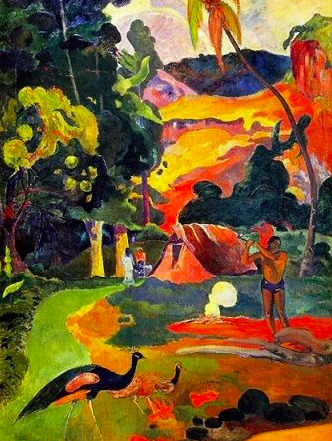
Paul Gauguin (1848 - 1903) - Matamoe ou le Paysage aux paons.
Questions
Does pragmatism in environmental ethics has a genuinely common basis from which to begin a discussion about the policy to be adopted in the face of a particular issue?
Is a conciliation between the environmental ideals of the rich countries (discourse of the intrinsic value of nature) and the interests of the governments of developing countries (discourse more favorable to the economic approach — continuation of their development), feasible ?
Number of words : 1180
Bibliography
Baudelaire, Charles, and Théophile Gautier. Les fleurs du mal. Miami, FL: HardPress Publishing, 2013.
Leopold, Aldo, and Charles Walsh. Schwartz. A Sand county almanac and sketches here and there. London: OUP, 1968.
Naess, Arne. The Shallow and the Deep, Long Range Ecology Movements. Oslo: Inquiry. 1973
McDonald, H. P. John Dewey and Environmental Philosophy. Albany, NY: State University of New York Press, 2004.
Mead, George Herbert, Charles W. Morris, Daniel R. Huebner, and Hans Joas. Mind, self, and society. Chicago: University of Chicago Press, 2015.
Light, Andrew, and Eric Katz. Environmental pragmatism. London: Routledge, 2005.
0 notes
Text
Planetary Management Worldviews and Stewardship Worldviews

Figure 1. Protestors led by Reverend Joseph Lowery march against a proposed toxic waste dump in Warren County, North Carolina, in October 1982. Figure 2. Protesters block a highway during a protest in Mandan against plans to pass the Dakota Access pipeline near the Standing Rock Indian Reservation, in November 2016.
« Whether by conscious design or institutional neglect, communities of color in urban ghettos, in rural “poverty pockets”, or on economically impoverished Native-American reservations face some of the worst environmental devastation in the nation. »[1]
Dr. Robert Bullard
In 1982, the community of Afton in Warren County, North Carolina mobilized in civil disobedience actions against the dangers of polychlorinated biphenyl (PCB). This event was considered as the starting point of popular grassroots movements against the introduction of toxic deposits, the excessive use of pesticides, the contamination of air and water by industrial or mining sites. These struggles have revealed the extent to which these environmental risks primarily affect disadvantaged populations, whether for socio-economic or racial reasons. Afton residents were 84% African-Americans and Warren County was also particularly affected by poverty and unemployment[2]. The same is true of subsequent movements, which have sprung up in many places in the United States and have particularly affected Indian reserves, whose territories were threatened by various types of pollution or offered to mining. This is why such militant claims have been described as environmental justice. Driven by the civil rights movement, these struggles, developed in various parts of the United States, federated. In 1991, the First National People of Color Environmental Leadership Summit was held in Washington and adopted 17 Principles of Environmental Justice.
From the local level where it appeared, the term environmental justice has also been used at the global level. Since its inception, the United Nations Environment Program (UNEP) has sought to combine social equity with the protection of nature. Furthermore, the Convention on Biological Diversity adopted at the Rio Summit in 1992, after having, in its preamble, affirmed the « intrinsic value » of biological diversity, formulates, from Article 1, a requirement of justice: « the sustainable use of its components and the fair and equitable sharing of the benefits arising out of the utilization of genetic resources »[3]. The Rio Declaration of 1992 commits nations to « conserve and sustainably use biological diversity for the benefit of present and future generations ». Thus, it introduces concern for future generations and links sustainable development to considerations of justice, making social equity its third pillar. In these global concerns, climate change has received particular attention, and the issue of climate justice has been aimed at studying the principles of equity that can govern the proper distribution, between different nations or between nations’ individuals, of the overall burden of climate change and the risks it implies (The Paris Agreement).
Questions about environmental justice, while referring to existing philosophies of justice, tend to question them or reveal their limits : Can we extend the boundaries of justice to include non- humans when it comes to environmental issues? What duties can we have regarding humans who do not exist yet and whose very existence may depend on the decisions we make now? What does it mean to limit environmental justice to the national or state framework? At what scale should the principles of environmental justice be defined ?
Recognition of the people is a prerequisite for obtaining justice. It is the basis of the opportunity to express not only his opinion but also and especially to see his opinion taken into account. In the Love Canal case, women who tried to express their point of view and report their testimony were systematically ignored, discredited because they were considered irrational, emotional and uninformed[4]. Women and people of colors are systematically denigrated by the authorities because they are considered irrational and uninformed. This is a problem all the more crucial since minority populations are historically not present in environmental movements. They could therefore not gain credibility by this means. Movements for environmental justice provide a voice for these populations. They contribute to giving them a political weight, to foster their empowerment by insisting on their recognition. Eniko Horvath, journalist for the Environmental News Network, notably reported the opinion of Mary Robinson on the matter. The former United Nations High Commissioner for Human Rights recognizes that a human rights focus would strengthen the Paris climate deal[5]. Associating these two thematics clearly would allow environmental justice champions to push for bolder actions within their companies and deliver stronger benefits for the most vulnerable.
Environmental justice is not based on a single, consensual definition. One of its main concerns is the extent of the duties of each generation towards individuals who will live in the future. Two contemporary theories of justice, utilitarianism and liberalism, advocate the idea of an intergenerational saving: it is not enough to preserve the common heritage, transmitted by past generations to meet our obligations, but it is necessary to transmit an improved world. The reasons given to justify such an intergenerational saving are different. For utilitarians, it is required to maximize welfare or utility in society, while for liberals, and especially for John Rawls, saving is considered necessary to form the basic institutions of society and therefore allow everyone to be free[6]. Indeed, building a fairer world makes it possible to limit the weight of social and geographical origin for the next generations, injustice linked to birth, and thus to reduce the transmission of inequalities over time.
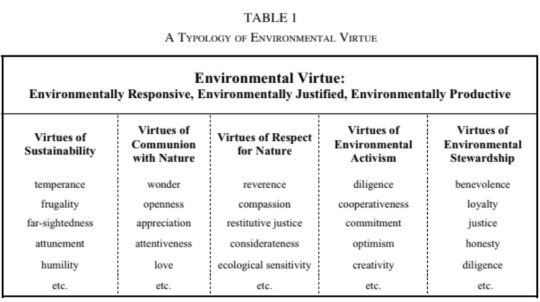
According to Aristotle, a social institution is right if it pursues objectives that promote the role of virtues[7]. It must allow to cultivate the good characters and to train good citizens. Ronald Sandler proposes to assign as origin to the environmental virtues, not their relation to external goods, but the very constitution of the moral subject: he defines this approach as substantial[8]. He supports the idea that beings who have a property of their own at the same time have an inherent value. Individual living organisms and certain collective beings that make up the environment have a property of their own. The willingness to recognize the inherent value of certain natural beings has a normative or motivational force in the sense of respect, solicitude, compassion and justice, and is an essential trait in the portrayal of virtuous individuals. The ethics of virtue remind us that in terms of the environment, the members of abundant societies do not even live decently: in this respect, their critical dimension is undeniable.
Questions
The question of environmental justice is now becoming that of the distribution of environmental policy burdens. How can we measure the environmental debt of the countries of the North towards the countries of the South?
Is the ratification of an international and binding legislation on the status and rights of climate change refugees feasible ?
Word Number : 1321
Bibliography
"Learn About Environmental Justice." EPA. February 27, 2018. Accessed March 05, 2018. https://www.epa.gov/environmentaljustice/learn-about-environmental-justice.
McQuaid, Times-Picayune John. "Change in the air." NOLA.com. August 12, 2016. Accessed March 05, 2018. http:// www.nola.com/politics/index.ssf/2000/05/change_in_the_air.html#incart_river_index_topics.
Convention on Biological Diversity ; Convention on Climate Change ; Forest Principles ; Rio Declaration. S.l.: United Nations Conference on Environment & Development, 1992.
McQuaid, Times-Picayune John. "Change in the air." NOLA.com. August 12, 2016. Accessed March 05, 2018. http:// www.nola.com/politics/index.ssf/2000/05/change_in_the_air.html#incart_river_index_topics.
Horvath, Eniko. "Climate Change and Human Rights." Environmental News Network. May 22, 2015. Accessed March 07, 2018. https://www.enn.com/articles/48589-climate-change-and-human-rights.
Rawls, John. A Theory of Justice. New Delhi: Universal Law Publishing Co Ltd, 2013.
Aristotle, and W. D. Ross. The Nicomachean ethics. Los Angeles, CA: Enhanced Media Publishing, 2017.
Sandler, Ronald L. Environmental ethics: theory in practice. New York: Oxford University Press, 2018.
0 notes
Text
Planetary Management Worldviews and Stewardship Worldviews
As a direct heir and a natural extension of Judeo-Christian thought, modernity envisages the salvation of humanity in the progress of science and technology. However, this progress is defined as the continuous growth of the domination of men over nature. An emblematic figure of this dichotomous vision, which strictly separates the human being from the nature and which assigns to the first the ambition and the duty to enslave the second, is that of Francis Bacon, who writes in the Novum Organum (aphorism 129) that science’s ultimate goal is to « to establish and extend the power and dominion of the human race itself over the universe »[1]. Rene Descartes conceptualizes this radical distinction between man and nature through the metaphysical basis of his theory of substances, distinguishing the thinking substance, specific to man, from the extended substance, simple material that the thought must informe. For the philosopher, the ultimate goal of human development, through scientific and technical progress, would be to « render ourselves the lords and possessors of nature »[2].
The role of master and conqueror conferred to the human being in Judeo-Christian thought and his secularization through the modernist faith in the human power of domesticating nature are the conceptual roots of the Western development model. While protection of nature has long been associated with a concern for the benefits that human societies derive from it, we are now seeing more and more exclusive attention to these benefits, both in scientific research and in public policies dedicated to biodiversity conversation. It is therefore necessary to question the effects of such an inflection.
Is it essentially a change of vocabulary and rhetoric with little effect on reality or is there a real transformation of logic and object? Do conservation of biodiversity and protection of ecosystem services refer to convergent and potentially interchangeable objectives, or is the shift to a service logic likely to undermine the necessary commitments to biodiversity?
In the ecosystem services approach, nature is considered only by the benefits that people derive from it. Therefore, we shall describe a shift from a biodiversity-centered perspective to a perspective centered on ecosystem services, as the effective instrumentalization of nature. This paradigm shift confirms the idea that the value of natural entities would only be relevant to their utility, direct or indirect, for human beings.
« From the fact that there is no normative definition of the natural state, it follows that there is no normative definition of clean air or pure water — hence no definition of polluted air — except by reference to the needs of man. »[3]
In People or Penguins: The Case for Optimal Pollution, published in 1974, Baxter discusses the relationship between the use of resources as a necessity for survival and pollution. According to him, no human community can present itself as non-polluting. Thus, according to him, pollution must be accepted, despite its harmful effects on the environment, provided that it increases the happiness of the majority of the human population. Baxter is the archetype of the utilitarian anthropocentric. Its main proposal is as follows: in order to solve the environmental crisis, we should not aim to obtain clean air or quality water but rather set ourselves an optimal level of pollution.
The relative preservation of our environment is not a problem since humans are highly dependent on nature, it is thus in their interest to preserve it. Baxter rejects any value to the natural world regardless of human interests. Its ethics does not exclude private altruism, but it rejects the possibility of harming humans to ensure the well-being of nature, the measure of this being the equilibrium point named the optimal level of pollution. Yet, the World Health Organization estimates that 4.6 million people die each year from directly attributable causes to air pollution. The investment in the fight against the latter is a public health issue, insinuating that this money could be better used in the construction of hospitals is therefore a mistake on the part of Baxter. The decline in mortality is, de facto, a direct return from investment in environmental protection.
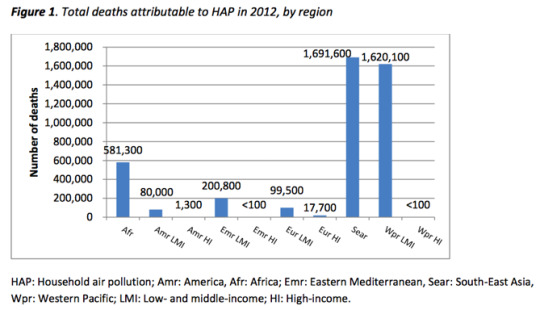
Given the imperative of economic development that characterizes the contemporary world, economic efficiency is often considered as a determining factor in private practices as well as in public policies. As a result, many researchers and conservationists have considered that the most compelling way to advocate for the protection of biodiversity is not only to highlight its contribution to human well-being, but also to demonstrate economic interest. These attempts then operate a second reduction. After having reduced nature to its instrumental values, it is a matter of quantifying these values in monetary terms. The instrumentalist reduction is then coupled with an economic reduction. If there are rights and duties only between men, how can we feel obliged to protect our environment?
If the human being and the natural environment are interdependent and require to be respected both, the limits of strongly anthropocentric positions are apparent, and a certain porosity between anthropo, patho, bio and ecocentric positions exists, especially in the practical domain concerning public policies and individual and collective action: the fight against pollution, a reforestation program or the preservation of spaces can be implemented both in the name of an anthropocentrism concerned with future generations and a bio or ecocentrism defending respect for endangered species and ecosystems. It is in this sense that some authors, such as Bryan Norton (1984), advocate a pragmatic approach that allows people with different postures — himself claiming a weak anthropocentrism — to work on the same practical issues.
Based on the common sense argument that the instrumentalization of nature does not necessarily lead to the destruction of it, a whole pragmatic reflection has developed, that challenges the desire to base environmental ethics purely on intrinsic value. It is accused of using heavy metaphysics and leading to sectarian positions. The quest for intrinsic value can be seen as the search for a unique, monistic theory of value. It is all the less likely to be accepted by as many people as it implies a metaphysical questioning, a search for the foundation. To this monistic and solitary vision of value, pragmatists oppose a pluralistic and relational vision. Why, to affirm the value of a forest, should one stick to one's "intrinsic value »? For example, according to Bryan Norton, a weak anthropocentrism based on thoughtful and not merely felt preferences is sufficient to warrant the protection of wilderness as a moral resource. For him, the individualism / non-individualism dichotomy is more decisive for the foundation of environmental ethics than that which is played out between anthropocentrism / non-anthropocentrism, since « no successful environnent ethic can be derived from an individualistic basis, wether the individuals in question are human or nonhuman.»

Bryan G. Norton, School of Public Policy at the Georgia Institute of Technology.
Norton's writings testify his willingness to challenge the practical relevance of all of this speculative problem in the name of two types of arguments intimately linked to one another, arguing, on the one hand, the disastrous effects internal quarrels between environmental ethicists that makes their speech politically inaudible and paralyzes their concerted action and, on the other hand, the particularly sterile nature of these debates insofar as the major concept of human interest is left in a state of extreme indeterminacy. We thus come to no longer be able to distinguish between a utility which is satisfied in the immediate consumption of the goods of nature (raw materials, agricultural products, etc.), and a utility which supposes the preservation of the useful object as a whole, as conservation is a condition for the satisfaction of human interests
Norton's opinion on this point is that nature protection programs are perfectly justifiable from the point of view of a sufficiently broad conception of the anthropocentric instrumental value. Better still, it is important to recognize this environmental problem as an undeniable practical superiority for at least two reasons. On the one hand, the invocation of the anthropocentric instrumental value corresponds, in fact, to the most widespread mode of justification among environmentalists, and constitutes in this respect an immediately common space for interlocution within which debate can take place. On the other hand, by succeeding in neutralizing the axiological controversy between intrinsic value and human utility, the use of the anthropocentric value in the broad sense allows, in this way, to leave to the subjectivity of each one the choice in favor of different philosophical options, and thus to shift the debate on the ground of the rational modalities of environmental action.
In reference to these pragmatist and pluralistic options, Norton has striven to develop its own theory of sustainable ecosystem management. Norton considers that the problem of the morally acceptable conditions of sustainable development needs to be posed within the framework of a theory of intergenerational justice. He also believes that the differences between the currently available models of sustainability come essentially from the way in which the problem of determining the obligations incumbent upon the future generations is posited, and how it is solved.
The difficulties encountered in attempting to overcome the usual limits of morality to include all living beings or the biotic community, explain that attempts have been made to develop an environmental ethic by challenging the rigidity of the distinction between intrinsic and instrumental value. It is not necessary to contrast the intrinsic value with the instrumental value, it is enough to show the diversity of the instrumental values. Utility is not only immediate, or material, it must be taken into consideration that there is a future, and future generations, that there are selfless interests, as are aesthetic or cognitive interests. To consider nature as a set of resources is not necessarily to destroy it: nature no doubt supplies us with goods (raw materials, agricultural products, etc.) that we consume by destroying them, but it also provides services (pollination, recycling, nitrate fixation, homeostatic regulation), without which we would not have access to these goods, and that it is in our interest to keep in activity, in no way to make disappear. The same thing can be said of the cognitive or aesthetic interest for nature.
If scientists, like systematicians, need hardly any elaborate environmental ethics, it is because in defending nature, they defend their object of work. In the same way, those who admire the beauty of nature, or find in the sublime a spiritual experience that elevates their soul, undoubtedly value a subjective experience of their own, but in doing so, they need a natural untouched without which this experience could not take place. Nature conservation programs are perfectly justifiable from an anthropocentric point of view, and one can, as Bryan Norton does, feel that this is the most common form of justification for environmentalists. Reductive anthropocentrism denounced by ecocentric ethics, one can thus distinguish an expanded anthropocentrism (sometimes called "weak") such that to value the man does not necessarily imply to devalue the nature.
The notion of ecosystem services reinforces and generalizes an anthropocentric posture that should nevertheless be questioned. In my opinion, economic evaluations of these services reduce the diversity and complexity of human values to the single market metric. Indeed, the commercialization of nature accentuates the injustices produced by the neoliberal logics of exchange based on individual property, markets and financialization. At the moment when the demonstration of the failure of a system becomes irrefutable, everything happens as if the environmental question could be integrated into this system without fundamentally calling it into question, being content to make development sustainable and the capitalist economy « green ». It is certainly a great threat to nature, but it is also and certainly more for human societies.
Questions
By reinstalling man as the center of values, pragmatists do not abandon the concern for nature. But do not they turn away from what can be considered as the main teaching of non-anthropocentric ethics: we are not alone in the world, non-humans also count, for themselves?
Pragmatism: ecological awareness or capitalist stratagem? (cf. conclusion)
Word Count : 2019
Bibliography
Bacon, Francis, and Joseph Devey. Novum Organum. New York: P.F. Collier, 1902.
Descartes, René. A Discourse on Method. North Charleston, SC: CreateSpace Independent Publishing Platform, 2016.
Baxter, William F. People or penguins: the case for optimal pollution. New York: Columbia University Press, 1974.
Norton, Bryan. "Environmental Ethics and Weak Anthropocentrism." Environmental Ethics 6, no. 2 (July 1984).
0 notes
Text
Methods Used in Environmental Philosophy and Ethics
The ethical and political presupposition of modernity is that nature is external to humans. Human beings regard it as their environment, as if things of nature were designed for the sole purpose of serving them. This is the origin of the ecological crisis of our time: the political and technical project of enslaving a fantasized nature dedicated to satisfying our needs. As for its valorization, it is reduced to the capitalist commodification of its resources. Our modern State and Being are therefore the results of an alleged right to organize the struggle against nature rather than a life in harmony with the latter. We must disqualify the political and moral foundations of our ways of thinking and acting, and replace natural law with a biotic law allowing a radical reform of the relationship between the city of men and nature[1]. De facto, the crisis is not ecological but political: it is that of the essential foundations of the city as πόλις / pólis.
To what extent can environmental ethics revolutionize our anthropocene modernity? What are our duties towards future generations?
If thinking in terms of ecological footprint allows us to emphasize that our way of life is unsustainable — not sustainable ecologically and morally unjustifiable — it does not shed light on the aporia mentioned above. In particular, this does not explain why a reasonable being — the Homo sapiens — tends to live less and less in reasonable ways. We are utterly unable to articulate rationally our conduct and our knowledge. This lack is specifically modern, all traditional societies had the capacity to articulate in a κόσμος / kósmos their representations of nature and their moral rules[2]. We have lost this capacity from the moment when things have become morally neutral objects, ontologically distinct from the moral subjects that we are. This dualism has resulted in what Heidegger has denounced as an alienating loss[3]. Such duality negates the sine qua non condition of an environmental ethic. Indeed, moral rules can only apply to self-conscious subjects. We cannot reasonably expect them to be applied to objects, nor even as to the relations of subjects with objects.
In the search for intrinsic value, two environmental ethics emerged. The first considers that every living entity, whatever it may be, deploys, in order to maintain itself in existence and to reproduce itself, complex strategies: it instrumentalizes its environment for its own benefit, and as such, deserves respect. As this ethics gives moral value to every living entity, it is said to be biocentric. The second considers that it is because we are part of the same community of living beings, or of the same biotic community, that we have duties as much towards its members as of the community as a whole. It is called ecocentric. It finds its roots in the reflection recorded by the American forester, Aldo Leopold. He exposes his Land Ethic, and formulates it as such: « A thing is right when it tends to preserve the integrity, stability, and beauty of the biotic community. It is wrong when it tends otherwise »[4].
Violence against animals is a source of increasing moral concern. This ethical concern is not recent, it has been questioning philosophers since Antiquity. Nevertheless, the evolution of the legal status of the animal is the surest sign of a change in mentalities. The Old Testament evokes in particular the community of destiny that brings together, as mortals, men and animals. The biblical text also includes a number of prescriptions protecting working animals. But it is Greek thought that formulates this problem in truly moral terms. In fact, Pythagoreanism and Orphism condemn sacrifice and advocate vegetarianism. Moreover, the skeptical tradition seeks to reduce the distance between man and animals, by emphasizing their ability to reason. Porphyry, in his treatise On abstinence from animal food, elaborates a critique of the arguments justifying the animal sacrifices. We find this theme with Plutarch, especially in his On the eating of flesh, where the refusal of foods from the killing is appreciated for moral reasons. In That Brute Beasts Have Use of Reason, Plutarch asks the major question: must one be endowed with reason to be recognized a moral status?
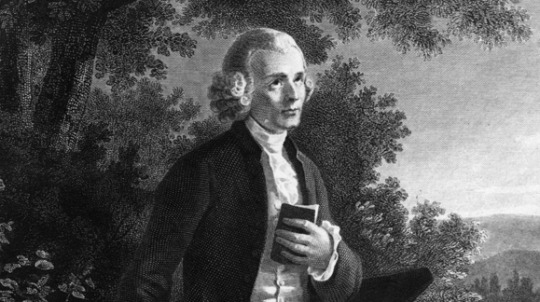
The French philosopher Jean-Jacques Rousseau (1712 - 1778)
The moral question takes, with the philosophy of Jean-Jacques Rousseau, a crucial turn thanks to the concept of pity, this ability to identify with every suffering being, whether human or animate[5]. By placing sensibility at the source of natural rights, it includes all beings that may suffer in the moral community. Since animals are beings capable of feeling pleasure and pain, inflicting pain on them is not a morally neutral act. Whatever the limits and derogations that some wish to oppose to this principle, any honest and worthy reflection will lead to the conclusion that it is not indifferent to inflict suffering.
This static vision is now very much in question. It has been replaced by a conception of biodiversity that no longer confines itself to the classification of species alone, but concerns all levels of life, from genes to the biosphere. Biodiversity can be understood as a system in the making, situated in the dynamics of evolution and appreciated in its functions: biological diversity seems to be a factor of adaptability of life, which guarantees the continuation of evolutionary processes[6]. To consider biodiversity in a dynamic perspective is to understand that people are also able to maintain and even improve biodiversity: the tropical forest is the result of a long coevolution between indigenous populations and their natural environment. Biological diversity and the diversification of societies are therefore closely linked, and the biological diversity of a region is part of the cultural identity of a human society.
The protection of biological diversity and the maintenance of cultural diversity therefore go hand in hand. Just as one cannot protect a species without protecting the ecosystem that houses it, it is difficult to conceive the continuation of human history regardless of the natural environment in which societies have developed plurality of their cultural forms. It is this insertion of the man into his environment, and the tasks that it involves if it is to be continued, that allows to appreciate an ecocentric ethics like that of A. Leopold.
Al Gore declares : « Just as we are both wave and particle, we are both a part of the web of life and separate from it. [...] It is possible to hold in one's mind two divergent ideas simultaneously, and my notion of our relationship to the rest of the web of life is based on two divergent ideas that are, in my opinion, both true. »[7] We thus discover that many issues, which involve the protection of nature, and which are presented as a conflict between man and nature, actually involve choices between a plurality of forms of human life. This is the case with the wolf in Alaska. The presence of wolves does not mean the death of herds, let alone that of men, but it encourages a change of lifestyle, to accept that the space where men live is not uniformly and solely human, but leaves room to other forms of life[8]. The uniform world is anthropocentric, but it is not certain that it is humanistic.

Extract from the Brundtland Report. Source : Report of the World Commission on Environment and Development: note. New York: UN, 1987.
There is therefore no need to oppose ethics of man and ethics of nature. The Rio Convention on Biodiversity combines the concern for nature with that of justice. With sustainable development, the concern for justice, equitable allocation of rights and access to resources is extended to future generations. Concern for the environment and concern for future generations go hand in hand as well. They appear at the same time, one bearing the other, as at the Stockholm Conference, in 1972, where the UN Declaration established the principle that the protection of nature and its reserves management must benefit to present and future generations, or in the 1987 Brundtland Report, where the introduction of the term "sustainable development" accompanies the reference to future generations. Thus, according to Teilhard de Chardin : « The fate of mankind, as well as of religion, depends upon the emergence of a new faith in future. »[9]
Questions
In the light of the synthesis formulated by Al Gore, must the environmental cause, to progress, emancipate itself from impervious classifications? Is transcending those philosophical categories the only way to promote ecological pragmatism?
De facto, conservation and its media coverage are currently focused on mammals, closer to Homo Sapiens in their behavior and structures. Are we condemned to preserve primarily the species in which our identity is reflected? What place does the narcissism of our species hold in the future of biodiversity?
Word Count : 1602
Bibliography
Augustine, and Marcus Dods. The city of God. New York: Hafner Pub. Co., 1948.
Hughes, J. Donald. "Artemis: Goddess of Conservation." Forest & Conservation History 34, no. 4 (1990): 191-97.
Heidegger, Martin, John Macquarrie, and Edward Robinson. Being and time. Malden: Blackwell, 2013.
Leopold, Aldo Starker. A sand country almanac: and sketches here and there. Oxford: Oxford University Press, 1989.
Rousseau, Jean-Jacques. Discours sur l’origine et les fondements de l’inégalité parmi les hommes. Paris: Éditions sociales, 1971.
The Sustainable Man. YouTube. February 13, 2014. Accessed February 12, 2018. https://www.youtube.com/watch?v=ysa5OBhXz-Q&t=5s.
Fisher-Smith, Jordan. "Environmentalist of the Spirit: An Interview with Senator Al Gore." Orion, July 1992. Accessed February 12, 2018.
Defenders of wild life. YouTube. September 19, 2007. Accessed February 13, 2018. https://www.youtube.com/watch?v=9Mu_rqmFpL8&=&list=TLUSvQqiBjvRJIB1akl6TD7oiUdXZ3om0C.
Chardin, Pierre Teilhard de. The Future of Man. New York: Image Books/Doubleday, 2004.
0 notes
Text
Environmental Problems In The Anthropocene
The Anthropocene is first and foremost a rupture, a break in our geological history and our action in the world. If we follow the traditional stratigraphy, the current geological epoch of the planet is that of the Holocene. It is a relatively warm period, marked by a great climatic stability, which began 11500 years ago, at the time of the exit of the last period of glaciation.
However, for two centuries, the industrial activities and the geographical power of action of our societies have considerably changed the situation. Humanity lives on a planet whose atmosphere is altered by the 1400 billion tons of CO2 that we poured into it by burning coal and oil. It is an impoverished, artificial living tissue, impregnated by new synthetic chemical molecules that modifies our descendants, it is a world warmer and heavier of risks and catastrophes, with a reduced glacial cover, seas which will be higher, and more deregulated climates.
We have left the Holocene to enter the moment when humanity became a major geological force for the planet. Thus, the 35th International Geological Congress, held on August 30, 2016, in Cape Town, South Africa, officially marked the entry into this new geological era. « Should the emancipation and secularization of the modern age, which began with a turning-away, not necessarily from God, but from a god who was the Father of men in heaven, end with an even more fateful repudiation of an Earth who was the other of all living creatures ? »[1]

Opening ceremony, 35th International Geological Congress, held on August 30, 2016, in Cape Town, South Africa.
After eliminating the possibility of one or more natural causes of this change, climatologists concluded that only the massive use of fossil fuels (oil, coal, gas, etc.) can explain it, this combustion causing a massive rejection of greenhouse gas (GHG) in the atmosphere. In the absence of such gases, the planet returns to space the energy it receives from the sun in the form of radiation. Since these GHGs prevent certain radiations from reflecting in space, the Earth warms up. In the total absence of GHGs, the Earth's average temperature would be about - 20°C. The amount of GHG present in 1800 ensured a more comfortable 15°C. Since then, their concentration has steadily increased to the point that recent climate change is impossible to explain without taking into account human emissions.
For the most polluting emission scenarios, the temperature increase between 1800 and 2100 is between +4 and +6.5 ° C, the most probable value being + 5 ° C. We have only known a small part of this increase, which should accelerate: in 2000, the rise observed since 1800 was + 1 °C. When we know that the climate was of 5 °C cooler during the last ice age, we realize what this difference can represent. Such warming would be accompanied by, for example, an increase in the sea level of about 73 cm (range 50-95 cm). In a world where 60% of the population lives within 150 km of a coast, the consequences would be dramatic[2].
Today, 80% of the world's energy supply is supplied by the oil / gas / coal triumvirate. The problem is twofold. Every year lost in the defossilization of our society seems to represent an extremely risky bet on the future. In addition, according to the World Bank, half of humanity is threatened by lack of water by 2025[3]. The synergy between desertification, urbanization and ultra- productive agriculture, greedy in water resources, leads to the depletion of nature reserves.
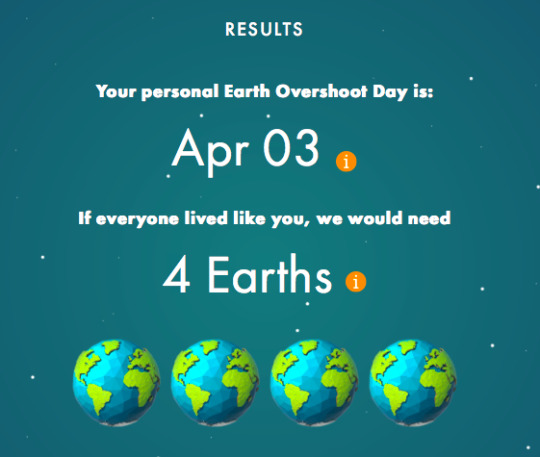
The fear of a population explosion that would endanger humanity is not new. Thomas Malthus, in his essay An Essay on the Principle of Population (1798), was one of the first to sound the alarm. It was not driven by an ecological concern, but rather by the impression that the production of food could in no way follow that of the population[4]. The exponential British population growth could only generate poverty, misery, social unrest and increased competition to survive. By a curious transfer of ideas, Malthus inspired Charles Darwin with his theory of the struggle for survival, which in turn led Francis Galton (Darwin's cousin) to pose the idea that human beings could be selected like racehorses. For the eugenic current inspired by F. Galton, the least desirable elements of the population are those who reproduce the fastest, causing a degeneration of the race[5]. These racist theories - resulting notably in massive campaigns of forced sterilization - were, however, strongly discredited after the Second World War.
The reality is indeed much more complex. It is not population growth (urban or rural) that is the driving force behind greenhouse gas (GHG) emissions, but rather the growth of consumers and their level of consumption. The presentation of the Anthropocene - and planetary boundaries - is criticized for translating a naturalized and depoliticized view of the history of man's relationship to nature. Yet relations between men, and especially inequalities, are crucial to understanding the emergence of the Anthropocene. Human societies and social groups do not all bear the same responsibility for going beyond or approximating planetary boundaries. Every man does not have the same impact on his environment. And the number of additional human beings matters less than their ways of life, organization, and production.
Eco-skepticism also affects the awareness of ecological issues. Its impact on opinion and political action shows that the ecological message is struggling to pass. It is a denial of the limits at the scale of a civilization based on the market economy and the demand to satisfy infinite desires for a growing population. We are confronted on all fronts at the limits of the planet and therefore the need to profoundly change the organization of our societies and our ways of life. This awareness, gained for the environmentalists but not for the public opinion, will forge the democracy to come.
We shall not reproduce, with the idea of modifying the atmosphere of the planet, the banal argument of our weakness. Skeptics ask how humans could influence a colossus like the Earth? The human race that exploits the globe is really bigger than the planet itself. Thus, the most optimistic about human behavior forecast only + 2 ° C (range 1.5-2.5) by 2100. And all have one thing in common: they assume emissions that start to decline before 2020. That is to say now.
Technological innovations, advances in knowledge and, above all, their pooling for the benefit of all continents have a key role here. They are essential (and already emerging for many of them) to the reduction of greenhouse gas emissions to the levels necessary to contain global warming, to the decoupling between improvement of well-being and resource consumption, to ecosystems restoration and their sustainable management. Certainly these transformations appear very difficult to implement: they constitute more a social and political challenge than a technological and scientific one. Yet, they would bring much greater environmental progress than a reduction in population pressure without changing our lifestyles, production and organization.
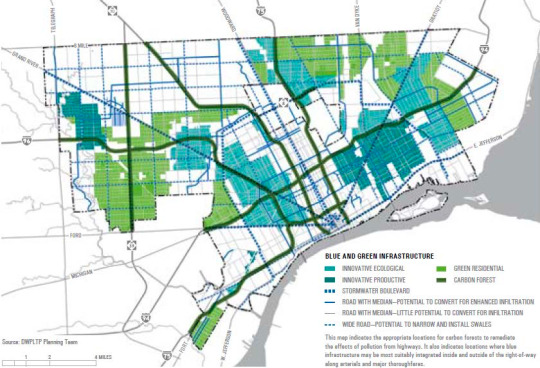
Detroit Future City Map. 2012. Source: DWPLTP Planning Team.
Several examples, such as short-circuit and localized agricultural production, private credit networks, urban and community gardens developed in major North American cities to revitalize them, as in Detroit devastated by deindustrialization, illustrates this global chronicle of citizens' takeover of the future. The fight against rising inequality or environmental damage often involves politics, but it must be exercised both globally (States, international organizations, etc.) and locally to be effective. These instructive experiences thus see the citizens reinvest, ultimately, the policy to give it local meaning.
In the digital era and the information that is opening up, we undoubtedly have the technical means to respond to the challenges of the Anthropocene. It is not sure that we still have the political means. Maybe it tragically just takes time and the temperature continues to rise so the information gets into everyone's mind. In any case, if it is able, it will be necessary that the humanity of the Anthropocene learns how to join forces, as well local as world.
Questions
If climate change allows us to think we have a role in nature, could we reverse the perspective by thinking about how climates also shape our diverse ways of living in society? This return to the everydayness of our lives could then initiate richer and more autonomous ethical and political changes than technical solutions that are not collectively chosen?
Is a legally binding legislation on the ecological footprint of the wealthiest citizens, in the image of the wealth tax, feasible?
Word Count : 1 475
Bibliography
Arendt, Hannah, and Margaret Canovan. The human condition. Chicago: University of Chicago Press, 2012.
GalinGichev. "Six Degrees Could Change The World 2." YouTube. July 05, 2008. Accessed February 04, 2018. https:// www.youtube.com/watch?v=hSKrJ4akeCk.
"Water." World Bank. Accessed February 04, 2018. http://www.worldbank.org/en/topic/water.
Malthus, Thomas Robert. Essay on the principle of population. New York: W W Norton, 2017.
Galton, Francis. Natural inheritance. New York: AMS Press, 1973.
0 notes
Text
The History Of Environmental Worldviews & Ethics
« Les étoiles mouraient dans ce beau ciel d’automne
Comme la mémoire s'éteint dans le cerveau
De ces pauvres vieillards qui tentent de se souvenir
Nous étions là mourant de la mort des étoiles
Et sur le front ténébreux aux livides lueurs
Nous ne savions plus que dire avec désespoir
ILS ONT MEME ASSASSINE LES CONSTELLATIONS
Mais une grande voix venue d'un mégaphone
Dont le pavillon sortait
De je ne sais quel unanime poste de commandement
La voix du capitaine inconnu qui nous sauve toujours cria
IL EST GRAND TEMPS DE RALLUMER LES ETOILES »[1]
The Breasts of Tiresias, Guillaume Apollinaire
Before the capacity we have to destroy ourselves, would not it be grand temps de rallumer les étoiles (time to ignite the stars once again)? The Enlightenment has given us tools to fight against obscurantism and a strengthening of reason to discern what is solid from what is not. On the other hand, it was accompanied by a disenchantment of the world by suppressing the parousic horizon of salvation whose function was notably the insertion of the temporality of our lives in the temporality of the world, thus giving meaning to the present time. Nowadays, do not we basically need the stars so that our life can be human? These stars represent the exteriority to the human existence, in its cosmic component, therefore defining it as human in its relationship to infinity. The environmental crisis was understood as an incentive to redefine the relationship between man and nature, to no longer see it as a mere reservoir of resources available to men, to question moral anthropocentrism, to develop, therefore, a new ethic. How to understand nature? Should we consider it only as the result of a necessary and mechanical operation? Should we think that it is the culmination of a series of random processes? To what extent can nature become an object of moral consideration again?
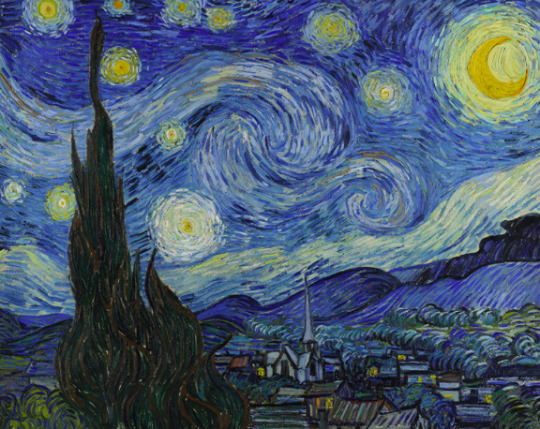
The Starry Night, oil on canvas by the Dutch post-impressionist painter Vincent van Gogh. Painted in June 1889. MOMA, New York.
We must ask ourselves if we can think of the « unity of nature », that is to say, to have « a wisdom capable of following the order of the Whole »[2]. Thinking the unity of a universe in the making, where each region has its beings, its laws and its constitution, is a difficult task. Is the philosophy of nature the whole, or only a part, of philosophy? That the human order is included in the living order is obvious. But to reduce it, it is only a hypothesis.
The contrast between the biological invariance of the species and its intelligent creativity is so obvious that it could only lead to a dualistic bias: the true essence of man was not to be found in his body - similar to that of other animals - but in his soul or in his mind, source of the inventiveness of the species. Thus, Galileo, Kepler, and Newton - to take only a few of the founders - are convinced that nature is decipherable and its laws, desired by God, intelligible; even if they have an incomparable sense of experience, the body as such does not seem to them to play any role in the discovery of the universe. Descartes, who is one of those founders of modern science, invents a timely philosophy that condones the separation between body and mind. Separating the spiritual and the physical was the first objective of the mechanistic thought of the seventeenth century. The philosophers of nature, especially in the second half of the century, were attracted by this new vision of the world. For Descartes, the world is made of matter and movement, matter being itself defined by the space it occupies, excluding all essence or inner form. Taking the machine as a metaphor for the cosmos, he denies the world any vital force or design[3]. The mechanistic philosophy dissects the material world into smaller and smaller particles, an atomistic conception from which the mind is banished and in which the Earth is considered dead.
It is quite remarkable that the critique of dualism subject / object, man / nature is a sort of commonplace of different discourses about nature today, especially those who are considering a new philosophy of nature. Reflection on the recent achievements of quantum mechanics and theories of relativity challenges dualism. Ecological reflection is not content to oppose anthropocentrism and biocentrism while preserving dualism; it recognizes that man's relationship as a living being within the ecosystem excludes the dualistic man / nature view. Finally, in philosophy, certain developments in phenomenology call into question the subjectivism of the first forms of phenomenology and man / world dualism.
In the second half of the nineteenth century, Darwin's theory became the instrument of a reduction of the human order to the biological order. This ample movement of ideas is nourished not only by science, but also by the criticism of revealed religions, and more particularly of Christianity. Why make the hypothesis of a creator God, since creation is a natural phenomenon, explicable from simple hypotheses? The ideological force of Darwinism is that it maintains the idea of creation, without the need of a Creator, in the sense of the God of monotheistic religions.
However, our obvious distinction between the supernatural and the natural applies badly to Greek thought and to its conception of the cosmos, which makes the sensitive world not only the place of expression of the supernatural, but - a character which escapes the monotheistic conceptions - a part of himself. Pythagoras was credited with extraordinary intellectual precocity, told that he spoke all languages, conversed with animals, foresaw the future, and possessed the gift of ubiquity. He thus became the archetype of the divine man who belongs to the human race, but is in constant contact with the gods from whom he draws his uncommon abilities. Pythagoreanism postulates a digital structure of the universe where all would be number. He affirms the immortality of the soul, whose corollary is its reincarnation in a certain number of bodies and its responsibility in its successive existences. He advocates respect for life in all its forms, which implies an ascetic lifestyle with prohibitions (not to use or consume anything that comes from a living being) and a strict control of desires. The proximity of an Athena with the olive tree, an Apollo with the arc put us on the trail of consubstantiality relationships between nature and supernatural. Thus, the bear and the goat, with the signs and meanings that go with it, is secant of a divine figure like that of Artemis.
Beyond the centuries, Augustine remains our contemporary. The division of the will, the inability of man to substitute himself for God, that is to say, to govern himself, and to be the sufficient source of his own unity, is thus found analogically in the the conflict of the two cities, which is none other than the conflict of these two loyalties, to God or to oneself, between which humanity in its history is as torn apart as the individual in his singular existence: « Accordingly, two cities have been formed by two loves: the earthly by the love of self, even to the contempt of God; the heavenly by the love of God, even to the contempt of self. » [4]. Having a body and a soul, the human being would thus be endowed with a dual nature, both material and spiritual, which would make him superior to other terrestrial creatures, the latter being incapable of conceiving of God and of to bend freely to his will.
For Saint Augustine, every being, no matter how harmful or insignificant it may seem to us, has a role to play in an order of things desired by God, whose understanding very often escapes us. Greed, and in a general way attachment to the goods of this world, distort our perspective: the smallness of the Man prevents it from grasping a scale of values which exceeds it.

The City of God, from a translation of the works of St. Augustine by Raoul de Presles, c.1469-73.
The duty of modern man is therefore to think our natural history through the theory of evolution and our constitution in the light of chemistry and biology. We thus discover that the elements of which we are made come from the stars and that we descend by an uninterrupted chain of the first living beings. The insertion of the human order in the biological order and in the legitimate physico-chemical requires to include its study in the philosophy of nature.
Questions
The right to education is reflected in international law in Article 26 of the Universal Declaration of Human Rights and Articles 13 and 14 of the International Covenant on Economic, Social and Cultural Rights. Should this international right to education become dependent on a right of access to nature (e.g. Swedish Constitution)? Should the environmental conscience of future generations be able to find the natural connection blessed by the goddess Artemis?
If man ceases to be the « measure of all things » (Protagoras) to back down to the status of animal species among others, how can he maintain his primacy? If it even plummets to the rank of a species particularly harmful for its irresponsible behavior towards the planet, why hold it for superior? If all his science and techniques cease to be credited to his rational abilities and are also included in the indictment for looting natural resources and the deterioration of the climate, where is his famous dignity ? Given the ecological urgency of our times, how can we deconstruct the egocentrism of our species?
Word Count : 1567
Bibliography
Apollinaire, Guillaume. The Breasts of Tiresias; a Surrealist Drama. Paris: Gallimard, 1917.
Platon, and Léon Robin. Oeuvres Complètes. Paris: Gallimard, 1985.
Descartes, René. A Discourse on Method: Meditations on the First Philosophy ; Principles of Philosophy. London: Dent, 1992.
Augustine, and Marcus Dods. The City of God. Edinburgh: T. & T. Clark, 1878.
0 notes
Text
What Are Environmental Worldviews & Ethics?
« We abuse land because we regard it as a commodity belonging to us. When we see land as a community to which we belong, we may begin to use it with love and respect. »[1]
A Sand County Almanac, Aldo Leopold

1940, at ‘‘The Shack in Wisconsin’’, where he wrote A Sand County Almanac. (Photo: The Aldo Leopold Foundation)
Can science lead us to an original thought of Being? Abstract, does it not sever with Being whose meaning it claims to explore? The current ecological crisis is not primarily a scientific, economic or technological crisis. It is a moral, spiritual and cultural crisis. For the scientific thought to be a philosophy, it must take the opposite of the movement that animates the scientific process. It is only by becoming aware of its sensitive anchorage that science will preserve itself from a radical rupture with Being. Therefore, to what extent does natural philosophy represents the ultimate scientific and metaphysical exigency of the twenty-first century?
The etude of the Presocratics by J. Baird Callicott, John van Buren, and Keith Wayne Brown is most enriching as it invites us to ask ourselves if the heroes of knowledge that we have become in our scientific-technical civilization have not, simultaneously, dispossessed us of Being. With the Presocratics was born a new type of discourse of knowledge, but not a unique knowledge. De facto, these Greek philosophers, poets and historians, doctors and physiologists, geographers and meteorologists, were engaged in a vast intellectual debate, independent from geographical boundaries and disciplinary barriers, while actively participating in the political life of their city.
Of the first thinkers of Miletus, Thales, Anaximander and Anaximenes, only very brief fragments remain, or even, for Thales, nothing, except stories and reported words. According to Aristotle[2], Thales of Miletus was the founder of the philosophy of « physicists » or « physiologists » who were concerned with seeking natural causes and consequently turned their backs on the speculations of theologians using myths and supernatural explanations. Nevertheless, this silent origin gave way to a figure close to a legend. In what sense can these thinkers be held for the first scientists, the first geographers, the first Greek astronomers and mathematicians? The inquiry on nature, ta peri phuseôs, posits phusis as a whole, a kosmos, and seeks its rationality through the question of arkhè, the principle. According to Thales, the fundamental principle is water, according to Anaximenes, the air, according to Anaximander, neither, but what he calls apeiron, the unlimited or the indefinite who receives all the determinations. Prescientific conception of the world or mythology? Perhaps it is necessary to refuse the dichotomy and say that it is the science that is to demythologize and the mythology that is to be known. Indeed, both were developed from the torment of the human condition.
Although the individual has an instinct of the sacred, he has lost the sense of sacredness. From the beginning of the seventeenth century to the end of the nineteenth century, the often grandiose attempts at a philosophy of nature ultimately came to a halt: the speculative physics of German Naturphilosophie fails before classical mechanics and chemistry; the Natural Philosophy of the English, ancient, subtle and powerful, does not resist the development of electricity, and, above all, the idea of evolution: Maxwell and Darwin consume its ruin.
Furthermore, has not the constant focus of Christian theology on the mystery of redemption also obscured the blessing of creation? The erasure of creation in favor of nature has created an opposition between the natural world and human history in a context of domination and exploitation. From a theological point of view, this dualism does not do justice to the fullness of the biblical doctrine concerning creation. Despite the proclamation of the death of God by Friedrich Nietzsche, the new scientific worldview illustrates a modern return to the philosophy of Anaximander.
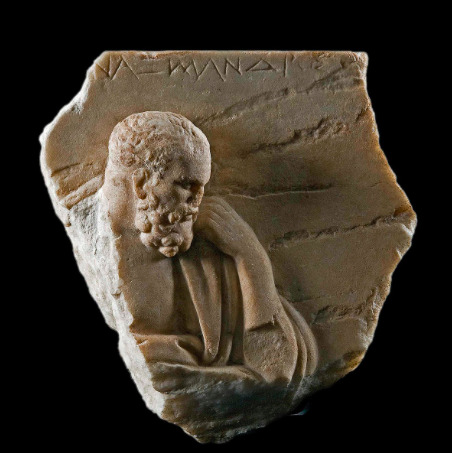
Relief representing Anaximander (c. 610 - 546 B.C.), Roma, Museo Nazionale Romano.
Of the three models of relationship between men and the Earth proposed by Miller and Spoolman, environmental wisdom worldview is therefore the one to achieve[3]. Strongly biocentric, it denies humans a special or unique place in the world, going so far as to consider men in a personal relationship with the ensemble of biosphere. Thus, Thomas Berry asserts that the natural world is, by its very nature, historical; indelibly linked to the human, nature is an integral part of human history. Characterized by the concern for the environment, beyond the feeling of kinship and community with the latter, this model calls for responsible action in its favor. Natural mysticism and the contemplative gaze on the beauty and the Being of nature are therefore not a romantic regression. They rather are a radical entry into the truth of our existence : « Whereas formerly values consisted in the perfection of the early image reflecting an external Logos in a world of fixed natures, values are now determined by the human sensitivity in responding to the creative urgencies of a developing world »[4].
Questions
If we accept that ecological concern does not depend on economic or scientific facts, but on values or principles, is religion the only instance that allows us to transcend the ecologically destructive rhetoric of economic growth and scientific problems? Is the future of our planet dependent on a certain proselytism?
« It became an introverted discipline cut off from the natural sciences, social sciences, and other humanities, an arcane ivory tower activity in which philosophers only talk to, and publish for, other philosophers. »[5]. How are we supposed to understand the absurdity of a conditioned existence if not by a philosophy at the service of our Being, alienated by modernity? Is not the knowledge of such subordinations the only means of defying them, at least partially? If the current power is that of a planetary management worldview, is it not our duty to know by what mechanisms we are subject to it? Therefore, does the emergence of ecofeminism and queer ecology not prove that the foucauldian heritage, emblem of the « narcissism and cynicism of French Theory »[6], is not incompatible with the pursuit of an Environmental Wisdom worldview?
Word Count: 1013
Bibliography
Leopold, Aldo. A Sand County almanac, and sketches here and there. Norwalk, CT: Easton Press, 1995. ↩
Aristotle, and J. L. Ackrill. A new Aristotle reader. Princeton, NJ: Princeton University Press, 1989.
Miller, G. Tyler, and Scott Spoolman. Environmental science. Australia: Cengage Learning, 2016.
Berry, Thomas. The dream of the earth. Berkeley, CA: Counterpoint, 2015.
Van Buren, John, Keith Waine Brown, and J. Baird Callicott. Greek Natural Philosophy, The Presocratics and Their Importance for Current Environmental Philosophy. First ed. Cognella, 2018.
Ibid, page 335.
0 notes